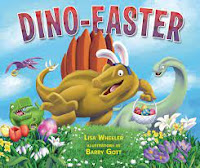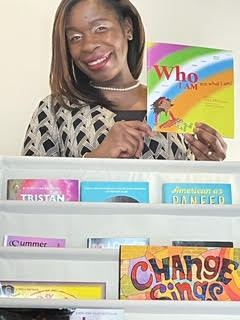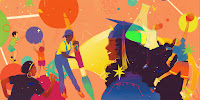February is Black History Month! This tradition began in 1926 in America it was started as Negro History Week and was founded by Carter G. Woodson. The week developed into a month long recognition and in 1976 it was reinvented as Black History Month. This is a time to focus on the contributions, inventions, and efforts that have been lead by people of African-American Descent. Black Americans have contributed in great ways to our world but unfortunately because of historical and traumatic obstacles like slavery, Jim Crow, and other oppressive measures, many people have not been acknowledged for their work or they have had others take credit for it. As authors and illustrators, how can we make a difference in 2022? We can collectively make a difference by reading books by Black writers and illustrators and buying them for educators, students, and families. We can donate these works to local libraries and organizations to make sure that they get more eyes on them to be seen and more ears on them to be heard. It is a great idea to think of Black authors and illustrators when seeking out author visit rosters and making sure that paid events are offered to those that are highlighting diversity in kid lit. Take a survey of your personal library...do you have children's books that have Black people as main characters? If so...add to those or review them...if not get started diversifying your collections. What creative ways can you make sure that this segment of Americans is highlighted and featured in your daily life? What more would you like to learn? What more would you like to do? Share it with us! We can inspire each other as we continue to be inspired by Black Americans from our past, present and those who we write and draw for...the future.
Monday, January 31, 2022
Black History: A Celebration of Americans by Tara Michener
Friday, January 28, 2022
Writer Spotlight: Three Members "Speak" Sign Language
Writers Come to American Sign Language In Different Ways, But Find it Boosts their Communication Skills Visually
Charlie Barshaw coordinates our quarterly Writer Spotlight feature and interviews writers of SCBWI-MI. In this piece, meet three SCBWI-MI members who know and use (in varying degrees) American Sign Language (ASL).
Melissa Bailey
How were you introduced to sign language? Why did you take it up? Where did you learn it? Do you use ASL on a regular basis?
I learned sign language about 15 years ago – a deaf friend taught me. While I did take an ASL class, I was mostly taught by the deaf. Since moving to be closer to family, now I mostly use ASL when I get together with deaf friends, so not much in the past two years!
Do you ever dream in ASL?
Yes! All the time, even though it’s been a while since I’ve been immersed in the community. ASL wormed its way into my heart and synapses and didn’t let go.
My daughter learned some sign language. She told me it’s a combination of painting a picture and directing a stage play. How might you describe ASL in action?
It’s very much like charades, but with grammar and vocabulary and structure—just as with any other language. Communication in ASL isn’t just with the hands; it’s been said that 80% is facial expressions. When chatting with a deaf person, you look in their eyes. You catch what they’re signing in the periphery of your vision; your focus is on their face and expressions. It’s a rich language based on concepts, not words, and is incomparable in conveying emotions and ideas.
The comparison to painting a picture is apt. ASL is structured very much like the process of drawing a picture. For example, in English, we would say, “The cat sat in the tree.” If you were to draw that, you draw the tree first, then place the cat in it. ASL grammar is exactly the same; you would sign ‘tree cat sit’. Actually, if I were signing it, I’d sign ‘tree’, then ‘cat’, then use a classifier to show the cat running up the tree and sitting in it (acting out the action like charades). I could also use expressions and body language to communicate the cat’s emotions or whether this scene is humorous, safe, mysterious, dangerous…
(A classifier is a hand shape that is used to represent something else. For example, the ‘number one’ handshape is often used to represent a person, and how you move the ‘person’ describes or communicates what they’re doing. They could be walking, running away, meeting another ‘person’, etc. – all depending on how you move that classifier.)
As a children’s book creator, does ASL ever work its way into your stories?
 |
| One of Melissa's covers |
Was there a moment when sign language was especially helpful to you?
So many moments! One moment was when our family went to Europe – being in Poland and Hungary, not knowing the language and needing to order food or get directions. Knowing ASL helped me communicate with acting and gestures, and we had a great time!
 |
| Another of Melissa's Covers |
This isn’t a ‘moment’, per se, but the biggest help that learning sign language has given me is in personal growth. Learning a new language, and a new culture, has allowed me to see the world from others’ point of view and lived experiences. And I’ve also gained lifelong friends I never would have made if I hadn’t learned sign language.
Who inspired you to love books and writing?
I have always loved books and stories. My mom is a reader and made sure that plenty of books were available, but she didn’t push my sister and me to read. She said I’d spend hours looking at books (I remember laying on the floor, poring over illustrations by Beatrix Potter and Eloise Wilkins). According to Mom, I asked her to read to me so much that when I showed an interest in learning how to read, she taught me so that I could read on my own (and maybe give her some free time?). So though the love of books and writing has always been there, all thanks goes to my mom for encouraging us to be creative and promoting literacy (both my sister and I learned to read well before kindergarten).
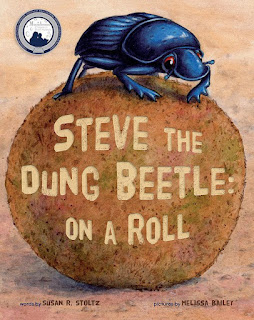 |
| And yet a third book cover |
What is your Work In Progress? What are you working on now?
Friday, January 21, 2022
It Starts with Hello with Lisa Wheeler
Thank you, Lisa, for being the first to submit your Hello story! Each time I read it, it feels like a warm fuzzy! (Yes, going retro on you, but it fits!)
Stay tuned for our next Hello and the story behind the story!
--Isabel
Estrada O’Hagin, SCBWI-MI Outreach Coordinator
It Started with Hello
Back in the summer of 1997--when dinosaurs roamed the earth--I went online. The first thing I did was look for My People. Typing the words 'children's writers' into the search engine brought forth a beautiful yellow message board (Anyone remember those?) for children's authors and illustrators. I started reading and fell down the rabbit hole. I was closer than ever to finding My People.
A week later, a message on the board said something like: If you live in SE Michigan you are invited to the SCBWI Schmooze!
I wrote to
the poster immediately.
What's
SCBWI?
What's a
schmooze?
Can I come if I haven't sold a book yet?
The answers
came back swiftly and that Sunday, I drove to the house of our very own Kathie
Allen in Beverly Hills, MI. I walked in the door and knew, without a doubt, I
had found them--My People!
We all spoke the same language--children's books! Everyone was so kind and helpful. Rhonda Gowler Green gave a talk where she shared her first two books. I appreciated learning that it takes time and that I was on the right track.
So to all of you newbies who are reading this, "Hello! Come on in and meet Your People!"
Submitted by Lisa Wheeler
You can follow Lisa online at:
Instagram: @littlelisais6
Twitter: @lisawheelerbook
Facebook: Lisa Wheeler Children's Books
Monday, January 17, 2022
The Dream Had Intention
By Tara Michener

Read Something Great!
Tara Michener is the author of six children's books that focus on self-esteem, diversity and anti-bullying. She is a TEDx speaker, therapist and owns her own private practice in Novi, MI. Tara has been recognized in publications such as Prevention Magazine, Essence Magazine, FREEP and more! She is the Committee Chair of E&I at SCBWI-MI. Her favorite days usually include spending time with her hubistrator, Jason, her son Cannon and her favorite snack Twizzlers and Diet Coke. You can follow her on Twitter @Taramichener.
Friday, January 14, 2022
Critique Groups: The How and the Why
How to Find a Critique Group. And Why You Should Go to the Trouble to Do It.
by Charlie Barshaw
When I was asked by a friend how to find a critique group, I was stumped. I’d managed through good fortune to find several groups of writers who agreed to let me be a part of their group. But how to start from scratch?
Luckily, our chapter is populated with knowledgeable and helpful members, especially our Co-Regional Advisors Carrie Pearson and Jodi McKay. Carrie replied to my friend and me, and her answer, on how to find (or form) your own critique group, is just too good not to share.
Carrie writes:
Thanks so much for reaching out. We're happy you are part of SCBWI and SCBWI-Michigan and would love to help you find a critique group! At this time, we don't have a mechanism to directly connect people who want to form a critique group or enter into an established group. However, we do have some good suggestions for how you can accomplish this in the Michigan chapter:
* If you aren't yet familiar with listservs, it's a way of grouping people who have a common goal. In our case, the MichKids Listserv connects all of the SCBWI-Michigan members who choose to join the listserv. When someone posts, that post is delivered to your email inbox. Click HERE for easy directions to join. It's always free and you can set it up so you get posts from MichKids as they come in, or once a day or even once a week so your inbox doesn't get too full for your liking. You'll find that MichKids is a welcoming and helpful place.
2. If you haven't already, get involved in your local Shop Talk. Our Shop Talks meet in person and now online. There are often critique opportunities here and/or people looking to form a group. Click HERE for Shop Talk information.
3. Post your request on our Facebook page. Click HERE for information about our Facebook group page and other social media feeds we host.
4. Use the SCBWI Blueboard to search for a critique group. This is a perk of your membership and is a vast resource. Remember that you'll be connecting with people from all regions of SCBWI, not just Michigan, but that is great, too.
* If you don't get responses to your reach outs right away, remember to re-post after some time has passed because new members are always joining. Sometimes a critique group loses a member or wants to add a new member. Timing is everything!
5. Check with your local children's librarian. They are often asked about critique groups and may have a mechanism for people to connect.
I hope this helps. Feel free to connect with any further questions or concerns. Watch for the monthly newsletters from SCBWI-Michigan that share information about upcoming events and helpful information. Keep creating and building your community. We are here and want to help you succeed!
Thanks, Carrie.
So now you know the HOW. But WHY?
Friday, January 7, 2022
Interview with Kristen Uroda, BIPOC Scholarship Awardee and Featured Illustrator
In a series of quarterly interviews, we’ll introduce you to the four new members who were awarded the 2021 BIPOC scholarships. We begin with Kristen Uroda, an illustrator who harkens from Detroit, MI. Welcome to SCBWI-MI, Kristen!
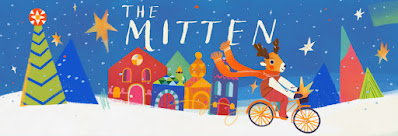 |
| Kristen Uroda's Winter 2022 Mitten Banner |
How will the SCBWI membership be useful to you?
Even in the short time since I
received the SCBWI membership, it’s been an incredible resource to learn about
the children's book industry, different ways to level up my skills, and
discover other illustrators in my own backyard. There’s such a wealth of
information and opportunities to connect with the larger community that is rare
to find if you’re doing this all on your own. I’ve learned so much already from
the digital workshops, I wish I could have joined sooner!
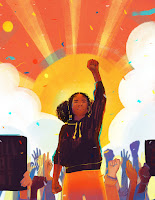 |
| Southern Poverty Law Center 2022 Calendar |
I am a Michigan native, born
in Detroit. I like to say that I’m a creator, innovator, and storyteller
passionate about art and design that makes a difference and makes the world a
more beautiful place. I love turning problems, stories, and abstract concepts
into illustrations that inspire reflection, action, and social and civic
change.
The Skillman Foundation Annual Report:
Celebrating 60 Years of Service (cover)
For the last decade, my sweet
spot has been in editorial illustration, mainly for news sites and publications,
but I originally went to art school (Massachusetts College of Art and Design)
with the intention of focusing on children’s books, comics, and narrative
illustration. While I do love the editorial world because I come across a lot
of unique stories that I have the honor of visualizing, I’ve been waiting for
the right time and opportunity to jump into the children's book industry. I
recently got my chance with my first picture book deal that should be completed
this coming year.
What in your
childhood or youth piqued your interest in writing or illustrating? What were
some of the major influences that led you to this road?
The first time I can remember
really being in awe of what hands could create with a simple crayon and paper
happened one day when I was practicing drawing stars. I was young, maybe 5, and
at the time, the best I could do was drag the crayon across the page to make
messy lines-criss-crossing stars. And I clearly remember at one point, asking
my mom if she could draw stars with me, so she sits down, grabs a crayon and
then draws this perfect, no crisscrossed lined star flawlessly and that
absolutely blew my mind.NPR:
Short Wave Celebrates Black Excellence
In Science
 |
| C&EN: Chemistry textbooks still lack gender and racial representation |
Even today, I’m still a
pretty big nerd for picture books, comics, and animated films. I can’t go into
a bookstore or library without stopping by the children’s section and being in
awe at the number of amazing artists and storytellers out there. And it’s great
seeing such a diversity of artists these days too. Throughout childhood and
even college, it was rare to see female illustrators and illustrators of color
in the spotlight. It’s only within the last decade that I’ve seen illustrators
like myself becoming more visible.NPR:
If You Feel Thankful, Write It Down.
It's Good For Your Health
Please share
anything about your current projects or what’s ahead in your creative work?
We’d love to hear about it!
 |
| NPR: Stop being so mean to yourself. Here are 5 tips to help you break the cycle |
As it’s my first picture
book, there’s been a lot of learnings gained, but I’ve had so much fun and the
team I’m working with have been great! I’m excited for it to enter into the
world and excited for whatever stories I get to illustrate next.
Thank you, Kristen, for sharing your story and illustrations with our SCBWI-MI community. We look forward to seeing more of your creative work!
--Isabel Estrada O’Hagin,
SCBWI-MI Outreach Coordinator









